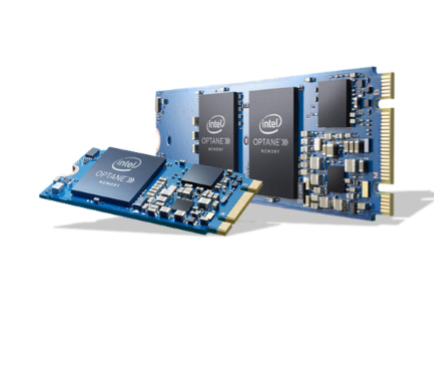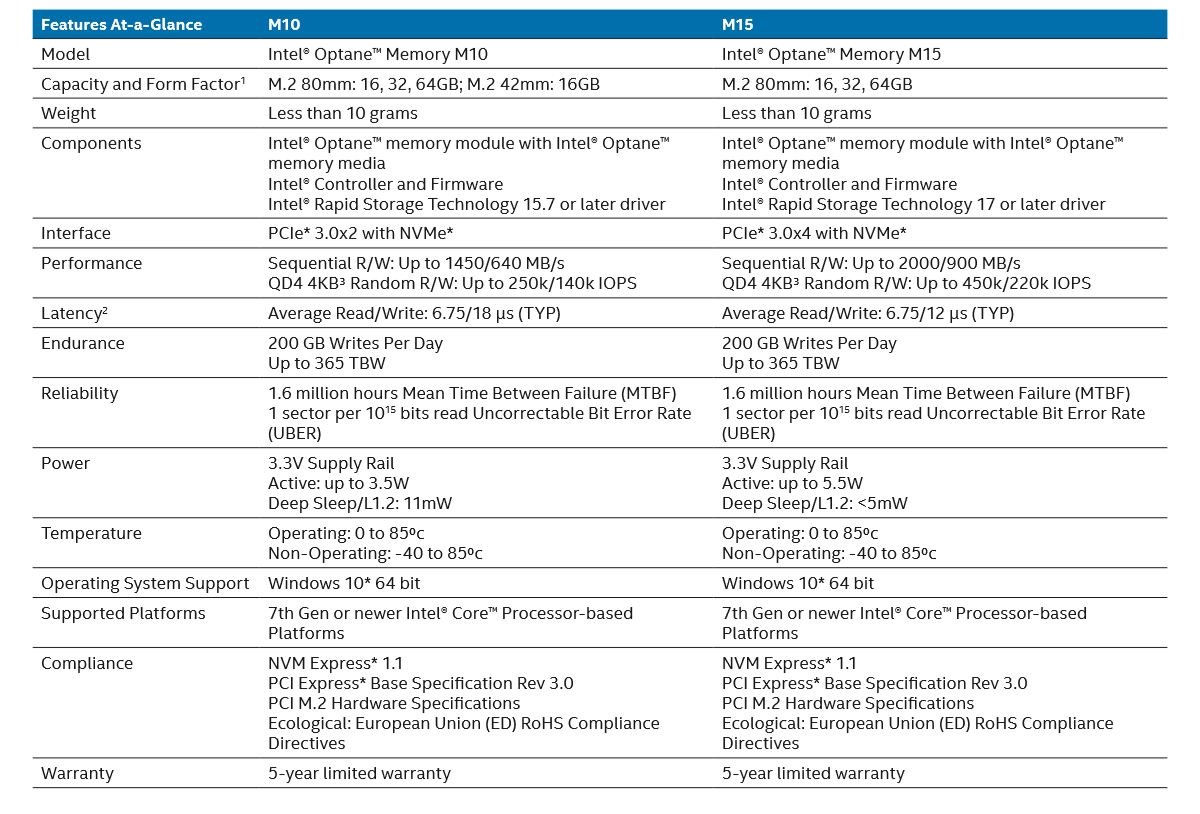Intel Drops Optane Memory M15 SSD, Higher Capacity and Boosted Performance
Intel announced its new Optane Memory M15 SSD today at Computex 2019. The new NVMe SSD comes with increased capacity and performance coupled with lower power consumption. This new product is an updated version of the Optane Memory M10 that is also designed to serve as a fast caching device for hard drives, thus blending the capacity and low pricing of hard drive storage with the speed of Intel's Optane memory.
The Optane Memory M15 addresses both the capacity and performance challenges associated with the first-gen products. The M15 comes with a doubled peak capacity of 64GB, but also comes in the same 16GB and 32GB capacities as its predecessor (all in an M.2 80mm form factor). Intel also widened the data pipe from a PCIe 3.0 x2 connection to x4, allowing access to twice the bandwidth. Intel's new proprietary controller doesn't fully saturate the bus though, but peak sequential read speeds improved by 550 MB/s, now reaching 2 GB/s, and write speed improves to 900 MB/s. Random performance also jumps considerably to 450,000/220,000 read/write IOPS.
Intel also improved the SSDs low power states, enabling faster transitions into and out of sleep mode and lowering the L1.2 deep sleep mode to a scant <5mW.
Other metrics, like the 365TBW endurance rating and five-year warranty, remain the same. The drive also supports Intel's existing software for the M10 series, so you can use the drive to accelerate both hard drives used as the operating system boot drive, or even secondary volumes.
The Optane Memory M15 seems to address some of the concerns of the relatively tiny (capacity wise) and limited performance of the first-gen models, but we don't have pricing or availability information yet. Stay tuned.
Get Tom's Hardware's best news and in-depth reviews, straight to your inbox.

Paul Alcorn is the Editor-in-Chief for Tom's Hardware US. He also writes news and reviews on CPUs, storage, and enterprise hardware.
-
svan71 People who do not know better will be pleased, the rest of us will opt for m.2 nvme ssd.Reply -
jimmysmitty The majority use for this would be OEMs. They will use it to provide cheap speed boosts to their lower end devices.Reply
I think their concept of combining Optane with an SSD is a better idea but again OEMs will utilize it. -
Brian_R170 Replyjimmysmitty said:The majority use for this would be OEMs.
And then they will distort their specs regarding how much "memory" the system has. :rolleyes: -
Bamda ReplyDiabl0 said:Funny. Or I simply buy a PCI-E 4.0 SSD.
The SSDs that companies are gearing up for PCI-E 4.0 is scary good.

